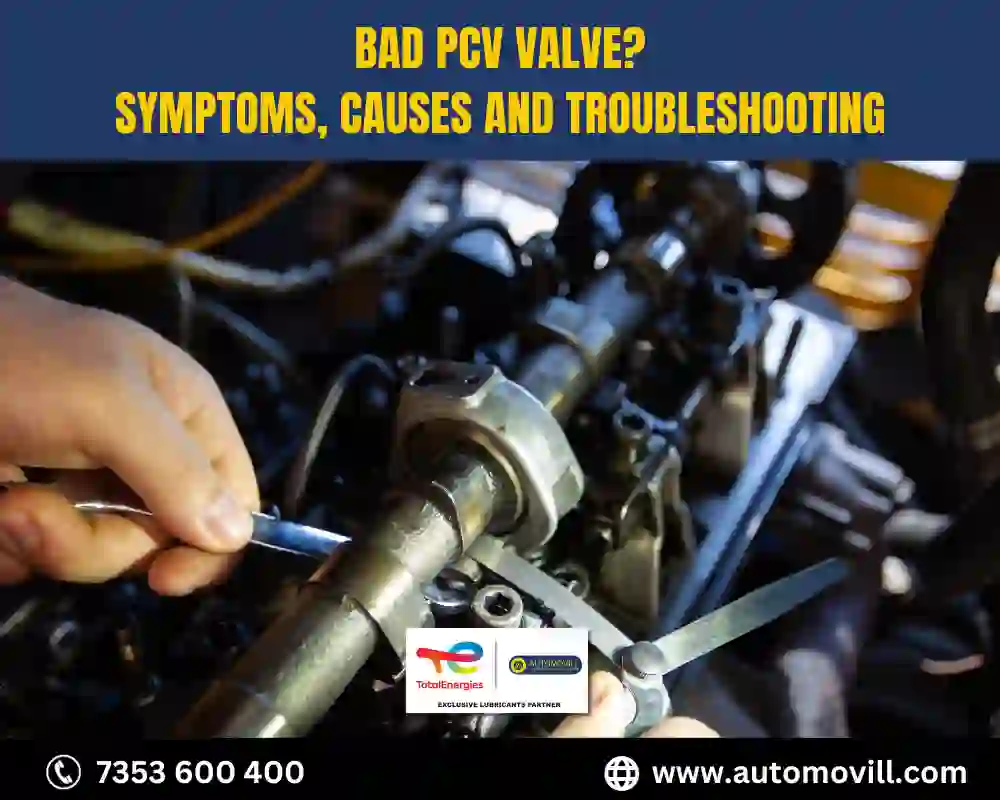
When it comes to the well-being of your vehicle, some of the smallest components can have a significant impact.
One such inconspicuous yet crucial part is the PCV (Positive Crankcase Ventilation) valve. The PCV valve plays a vital role in maintaining your engine’s health and overall performance.
In this blog, we’ll delve into the world of the PCV valve, exploring its symptoms, causes of failure, troubleshooting methods, and answering some frequently asked questions to keep you well-informed.
Function of the PCV Valve
The PCV valve’s primary function is to maintain a delicate balance within your engine’s internal environment.
It’s responsible for recycling the gases produced during the combustion process and redirecting them into the intake manifold. This accomplishes two essential tasks:
- Emission Control: The PCV valve helps your vehicle comply with emissions standards by preventing the release of harmful gases, such as unburned hydrocarbons and blow-by gases, into the atmosphere.
- Pressure Regulation: Equally important is the PCV valve’s role in regulating air pressure within the engine’s crankcase. By allowing the release of excess pressure and gases, it prevents the buildup of pressure that could otherwise lead to oil leaks, damaged seals, and other engine complications.
In essence, the PCV valve ensures that your engine runs efficiently, cleanly, and with minimal risk of internal damage.
Symptoms of a Bad PCV Valve
A malfunctioning PCV valve can go unnoticed for a while, but it can lead to several issues in your vehicle. Here are some common symptoms of a bad PCV valve:
- Poor Fuel Efficiency: A bad PCV valve can disrupt the air-fuel mixture, leading to decreased gas mileage and increased fuel consumption.
- Idling Problems: You may experience rough idling or even stalling when the PCV valve fails to regulate the air pressure within the engine.
- Increased Oil Consumption: A faulty PCV valve can lead to excessive oil consumption and, in some cases, oil leaks.
- Excessive Smoke: You might notice blue or grayish smoke coming from the exhaust due to oil burning in the combustion chambers.
- Illuminated Check Engine Light: A malfunctioning PCV valve can trigger your vehicle’s check engine light.
Causes of PCV Valve Failure
Understanding why a PCV valve fails can help you prevent future issues. The common causes of PCV valve failure include:
- Clogging: Over time, carbon deposits and sludge can clog the PCV valve, impeding its proper functioning.
- Age: Like any mechanical component, PCV valves wear out over time, losing their ability to control air pressure effectively.
Troubleshooting
If you suspect that your PCV valve is the culprit behind your vehicle’s issues, you can follow these troubleshooting steps:
- Inspect the Valve: Locate the PCV valve, typically situated on the valve cover or the intake manifold. Check for visible damage or clogs.
- Remove and Shake: Carefully remove the PCV valve and shake it. If it rattles, it’s likely still in good condition. If not, it may be clogged or malfunctioning.
- Blow Test: Remove the PCV valve and blow through it. You should be able to blow air in one direction but not the other. If air passes through both ways, the valve is faulty and should be replaced.
FAQs
1) Can a bad PCV valve cause overheating?
A malfunctioning PCV valve can indirectly contribute to overheating by disrupting the engine’s air-fuel mixture, leading to poor combustion and elevated temperatures. However, it’s not the primary cause of overheating, and other factors may be involved.
2) Can a car run with a bad PCV valve?
Yes, a car can technically run with a bad PCV valve, but it’s not advisable. Running your vehicle with a malfunctioning PCV valve can lead to poor fuel efficiency, increased emissions, and potential engine damage.
3) How Long Does the PCV Valve Last?
The lifespan of a PCV valve varies depending on factors like driving conditions and maintenance. On average, they can last anywhere from 20,000 to 50,000 miles. It’s essential to include PCV valve inspection in your regular maintenance routine.
Supercharge Your Car’s Engine – Get Your PCV Valve Checked Now!
Is your car exhibiting symptoms of a bad PCV valve?
Don’t wait until it’s too late. Contact our professional mechanics today for a thorough inspection and repair.
Ensure your vehicle’s health and enjoy a smoother, more fuel-efficient ride!
